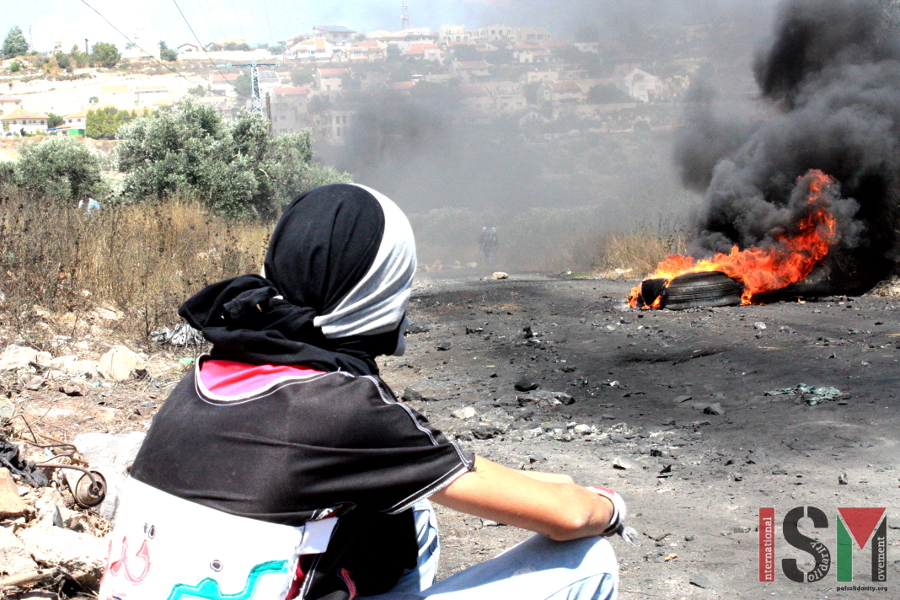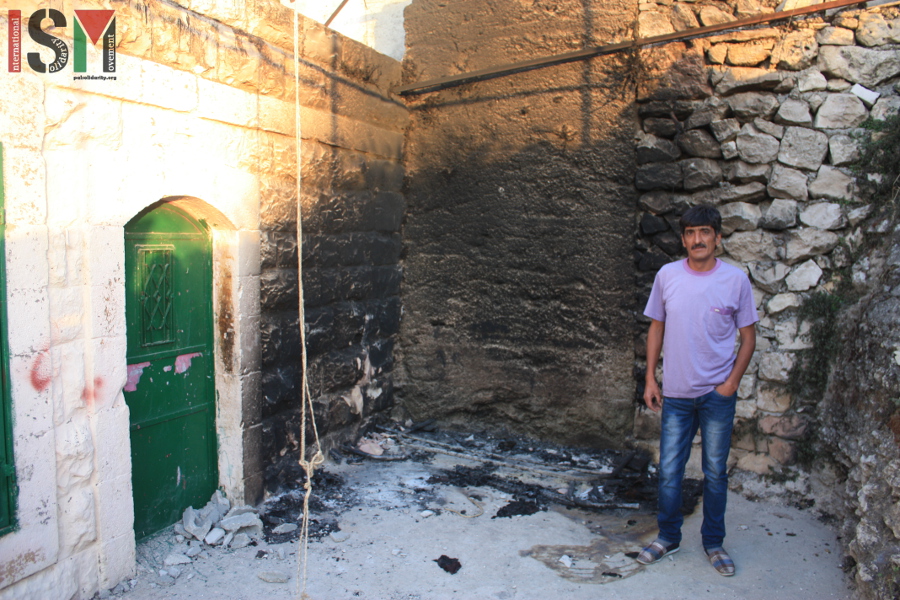Category: Hebron
-
5 Palestinians shot in Kafr Qaddum
12th June 2015 | International Solidarity Movement, Al Khalil Team | Al Khalil, Occupied Palestine At Kafr Qaddum’s weekly demonstration yesterday, 12th June 2015, Israeli occupation forces invaded the village hours before the protest was set to start. Five Palestinians were shot with live ammunition. Two were shot in the leg, one was shot in the arm and two were shot in the…
-
Settlers set Palestinian home on fire
31st May 2015 | International Solidarity Movement, Al Khalil Team | Al Khalil, Occupied Palestine Around 12 PM Saturday night the 30th/31st of May, Imad Abu Shamsiyeh woke up to the sound of stones being thrown at his home, in Tel Rumeida, Al Khalil (Hebron). This is not at all out of the ordinary for the Abu Shamsiyeh family…
-
Israeli forces break the arm of a Palestinian man at peaceful protest, Beit Ummar
30th May 2015 | International Solidarity Movement, Khalil Team | Beit Ummar, Occupied Palestine Today in Beit Ummar, just north of Al Khalil (Hebron), Israeli forces broke the arm of local activist Yousif Abu Maria, and then arrested him. Yousif was protesting with a group of around 30 local Palestinian activists outside an illegal Israeli…



